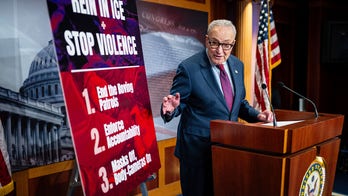In most countries, proving that one’s statements were truthful is the primary defense against libel lawsuits. Though in Ecuador, it is doubtful that even validation of the veracity of an opinion article about the litigious Rafael Correa could save independent journalists from his wrath.
Correa recently pushed through a lawsuit against the editorial page editor of El Universo, Emilio Palacio, and three of the newspaper’s directors, for an editorial that called Correa a dictator, and said that he had ordered the controversial attack on the police hospital where he was holed up amidst a police strike on September 30, 2010. Correa has denied several times that he ordered the attack.
But the defiant journalist Emilio Palacio, after losing the unjust case, released documentation of the military’s report of the incident which shows proof that not only did Correa order the attack, but rather than attempting to negotiate a peaceful end to the situation, the president ordered that “the entrance of military personnel should be fast to maintain the element of surprise.”
This is not the only untruthful statement that Correa seems to have made. He immediately made the claim that the police protest was an “attempted coup” - a perennial favorite of the ALBA autocrats whenever there is a protest against their increasing tyrannies - and that he had been “kidnapped” by the police. But the military documents dispel this notion as well, calling the actions of the police a “protest of the National police” and a “stoppage of their activities.”
Moreover, the Ecuadoran daily Expreso interviewed patients and doctors that were present in the hospital while Correa was holed up there. A first-hand account of the incident was given by Dr. Fernando Vargas, who was on duty at the hospital at the time. Dr. Vargas told Ecuadorenvivo.com that Correa “was never kidnapped, was attended to by hospital personnel,” and “the minister of the interior was in permanent contact with him.”
Aida Zaldumbide, one of the patients that witnessed the events, told the daily Expreso: “It is unjust what happened. The press here is talking about him being kidnapped but it wasn’t that way. The special forces made a cordon for him to be able to leave but he did not want to. We told him to leave, to put our lives first, but he did not want to.”
Instead of leaving when it was safest for him and for the patients and doctors in the hospital, Correa refused, and instead opted to maximize his campaign opportunities by waiting until supporters from his political party could come to walk out with him in a photo op. Ms. Zaldumbide explained the events to Expreso, saying that Correa “insisted on having [his political movement Alianza Pais] come to escort him out because he had to leave with his head held high.”
Moreover, the police that Correa had accused of initiating a “coup” actually offered him an armed escort and waited two hours for the president to use it to leave the hospital safely. But rather than use the armed escort, Correa ordered “a savage military assault on this hospital,” in which there were women, children and elderly patients, according to Dr. Vargas.
Despite this overwhelming evidence that what persecuted journalist Emilio Palacio reported was true, the facts seem insufficient to dissuade Correa from his legal campaign to intimidate journalists and squelch criticism of his increasingly autocratic regime.
Not only has his lawyer announced a new lawsuit against another journalist, but Correa has also pushed through a referendum which will allow him, among other things, to censor the media via a “media oversight panel” instead of having to go through the motions of a trial in the future.
As the Washington Post editorialized on Thursday, “Mr. Correa is seeking to destroy or silence the remaining independent media, which to his distress have taken on topics such as the hundreds of millions of dollars in government contracts awarded to his brother.”
The Post ended its editorial by quoting a report by the Inter-American Press Association President Gonzalo Marroquin, who stated: This is a “systematic and hostile campaign to do away with the independent press and establish, by law or through the courts, ownership of the truth that all the Ecuadoran people must swallow.”
When the truth is no longer a defense against charges of libel, justice is no longer a purpose for the court. Correa removed any doubt about the independence of the judiciary when he sat in on the trial of Emilio Palacio, looking menacingly at the judge who was forced to consider his own consequences when ruling on those of the journalist.
Jon Perdue is the director of Latin America programs at the Fund for American Studies in Washington, DC. He can be reached via Twitter @jonperdue.












































